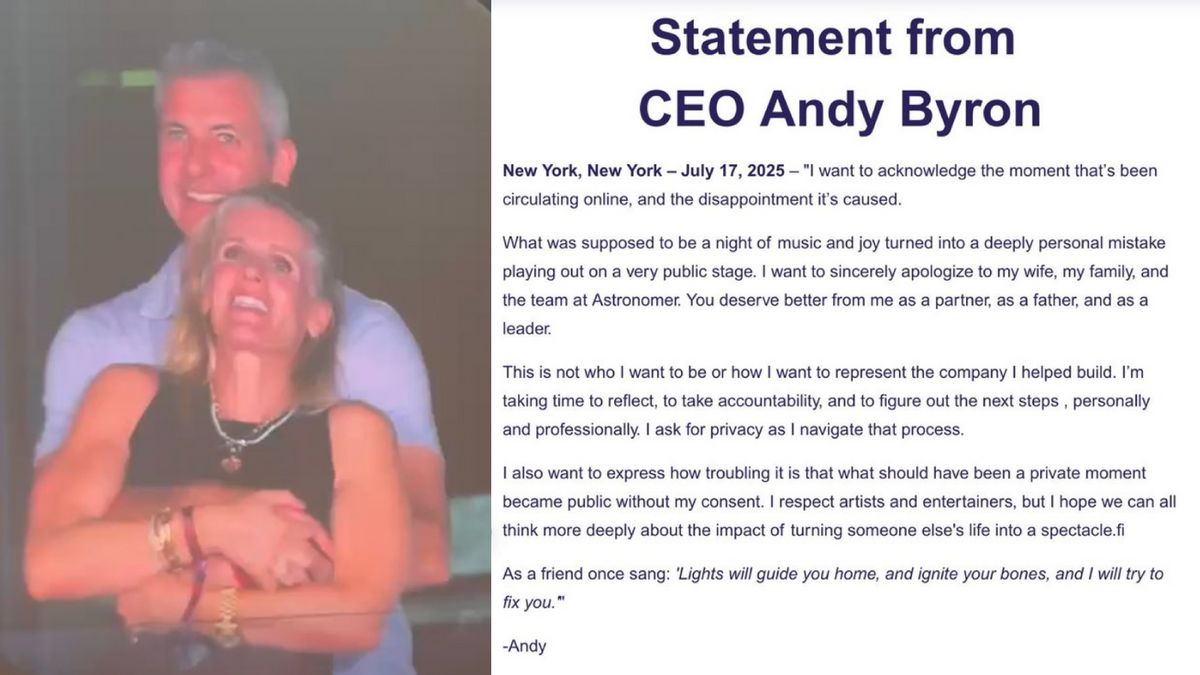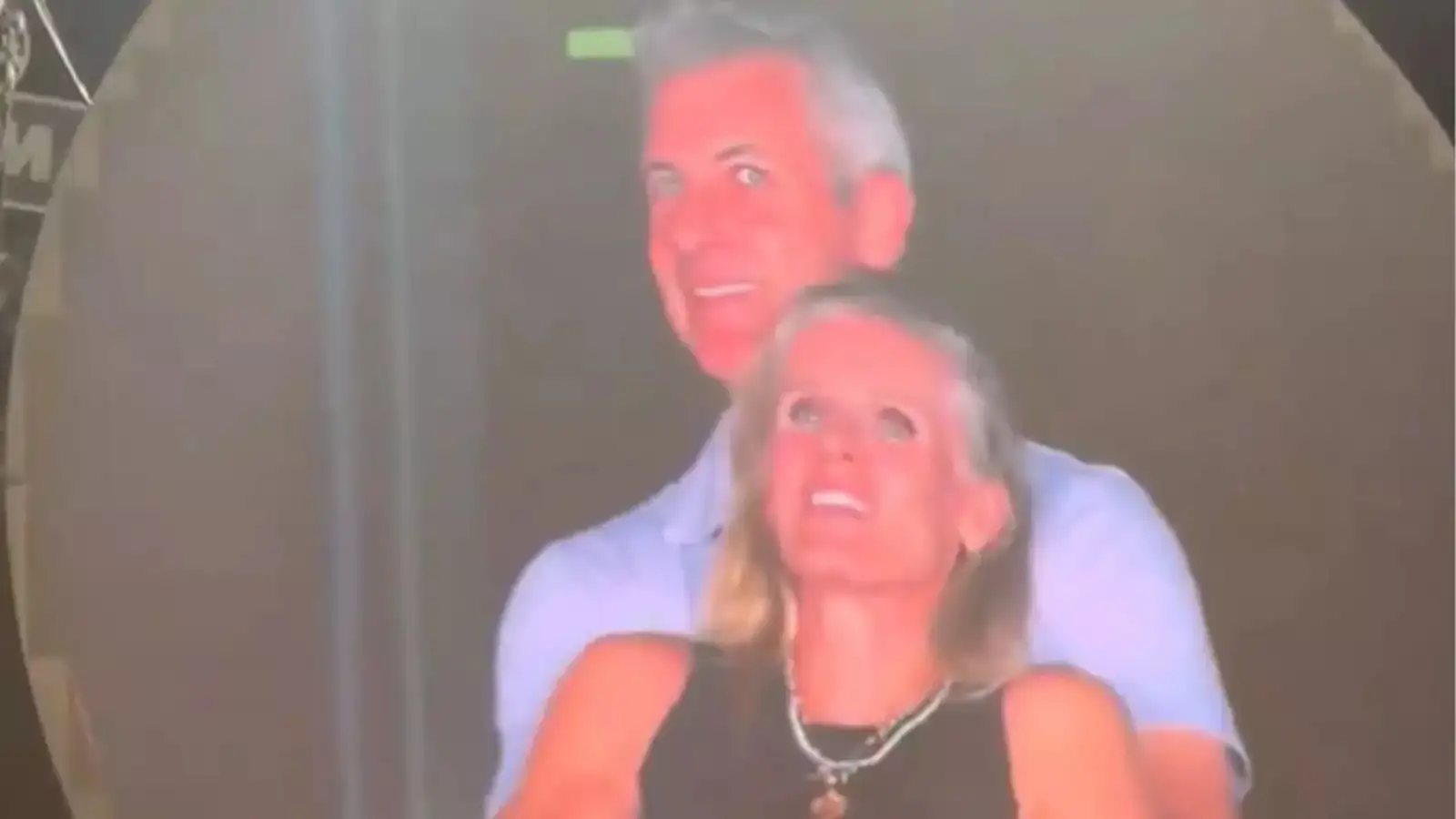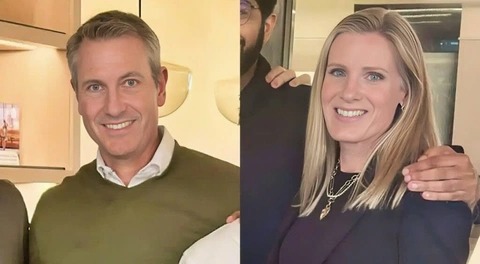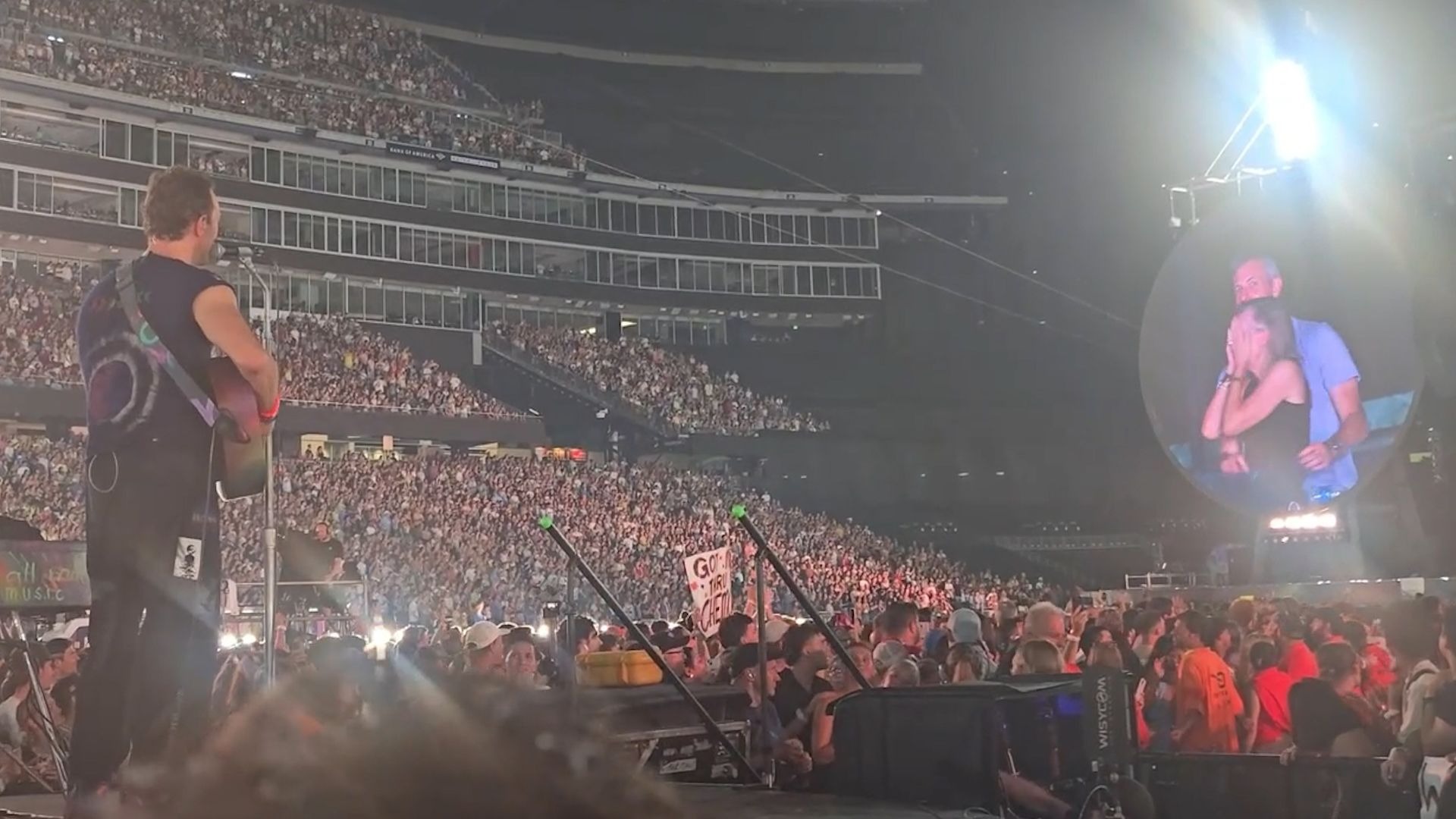Andy Byron, the former Chief Executive Officer of data analytics company Astronomer, recently stepped down from his role following a widely circulated video taken at a Coldplay concert in Massachusetts on July 16, 2025. The incident, which occurred during a public performance at Gillette Stadium, went viral online after Byron was shown on the venue’s jumbotron screen in an embrace with an Astronomer employee, Kristen Cabot.
The brief clip quickly spread across social media platforms, including TikTok and Instagram, prompting intense public scrutiny and ultimately leading to Byron’s resignation from his leadership position. As speculation emerged about possible legal action against the band, legal professionals have clarified that such a case would likely have no merit.

The Concert Moment That Sparked Online Reactions
According to multiple media reports, including verified coverage from The Mirror and Newsweek, the clip in question featured Byron and Cabot during Coldplay’s live performance, displayed on the stadium’s big screen for thousands of concertgoers to see. Viewers online commented on the awkwardness of the interaction, and some questioned the professionalism of the display, particularly given the executive-employee relationship between the two individuals.
Soon after the video began trending online, Astronomer released a public statement confirming Byron’s resignation.
Official Statement from Astronomer
In a carefully worded statement posted to Astronomer’s official social media channels and website, the company acknowledged the situation without naming either individual directly.
“Astronomer is committed to the values and culture that have guided us since our founding. Our leaders are expected to set the standard in both conduct and accountability, and recently, that standard was not met.”
The company further confirmed that Andy Byron tendered his resignation, and it was accepted by the Board of Directors. The company has since appointed Pete DeJoy, Cofounder and Chief Product Officer, as interim CEO while a formal search is conducted for a permanent replacement.
At the time of publication, neither Byron nor Cabot have issued any public comment regarding the incident.

Online Speculation and the Question of Legal Action
Following the viral nature of the concert clip, various online forums and social media users speculated whether Byron might consider pursuing legal action against Coldplay or the event organizers for what some interpreted as an invasion of privacy or reputational harm.
However, legal professionals have been quick to clarify that such a case would likely be dismissed, citing both legal precedent and First Amendment protections.
Expert Legal Analysis: No Grounds for Lawsuit
Ron Zambrano, an attorney at West Coast Employment Lawyers, spoke with The Mirror and addressed the idea of a lawsuit, explaining that attending a public concert inherently limits one’s expectation of privacy.
“He has no grounds to sue,” Zambrano stated. “It would immediately be struck down as a restriction on creative speech and Coldplay’s ability to be artistic during their performances.”
He also noted that public figures or individuals attending public events assume the risk of being photographed or recorded, particularly when images or footage are captured as part of a venue’s experience.
Additional Commentary from Civil Litigation Experts
Tre Lovell, an entertainment and civil attorney with The Lovell Firm, echoed similar sentiments. He explained that no laws were violated during the filming or display of Byron and Cabot on the screen.
“When you are out in public, you have no right to privacy for your actions. People are free to photograph and video you,” said Lovell.
He further clarified that the only legal concern would be if the footage had been used commercially without consent, or if it had misrepresented the individuals involved in a defamatory or false context — neither of which apply in this case, according to available evidence.
Lovell emphasized that simply being recorded at a public event does not establish legal grounds for a privacy or defamation lawsuit.
Why Legal Action Would Be Difficult to Justify
The circumstances surrounding this case highlight the challenges of pursuing legal action for incidents occurring in public settings, particularly during live entertainment events. Legally, the Coldplay concert was a ticketed public event with no expectation of privacy for attendees. Additionally, the jumbotron footage was not used in promotional materials or advertisements — it was broadcast live within the venue as part of the concert experience.
Furthermore, viral videos captured at concerts or sporting events are not uncommon, and in many cases, those featured on screen become recognizable for a brief moment due to the reach of social media. While this can lead to reputational impacts, it does not constitute a legal violation unless clear harm, falsehood, or unauthorized commercial gain can be proven.
Broader Implications for Public Conduct in the Digital Age
This incident underscores how public behavior, even during personal or recreational outings, can quickly become subject to public interpretation and criticism due to the pervasive nature of digital media. Social media platforms often amplify minor moments into major talking points, especially when the individuals involved hold public or corporate leadership roles.
Executives and public figures are increasingly expected to uphold professional standards not only in the workplace but also in their personal conduct, particularly when it becomes visible online.

Transition at Astronomer and Organizational Response
Astronomer’s swift response to the situation, along with the acceptance of Byron’s resignation, reflects the growing trend of corporate accountability and reputation management. With stakeholder trust and public image playing a larger role in organizational success, companies often act decisively when internal controversies risk becoming distractions from core operations.
The interim leadership of Pete DeJoy suggests a focus on continuity and culture preservation during the transition period.

Conclusion: Viral Moments, Public Platforms, and Legal Limits
The events surrounding Andy Byron’s resignation serve as a reminder of the complex interplay between public appearances, corporate accountability, and viral media. While public interest in such stories is often high, the legal boundaries are clearly defined when it comes to privacy and freedom of expression in public spaces.
Legal experts agree that in this particular case, any lawsuit against Coldplay or the concert venue would lack substantial legal foundation. The scenario illustrates the importance of understanding how personal actions can resonate beyond the moment in today’s hyper-connected world — especially for those in positions of leadership.
Sources:
-
The Mirror (UK): Legal Experts Comment on Viral Coldplay Concert Incident
-
Newsweek: CEO Resigns After Viral Video at Coldplay Show
-
Official Astronomer Statement: LinkedIn & Company Website
-
West Coast Employment Lawyers: Public Legal Commentary
-
The Lovell Firm: Media Interview on Civil Litigation Rights


